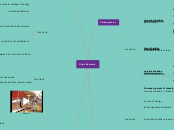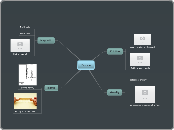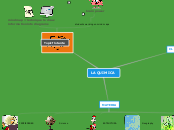Chp 4 Nutrients
proteins
antibodies formation to combat diseases
used for enzyme & hormone synthesis
essential for protoplasm synthesis
Increasing order of complexity:
amino acids -> polypeptides -> proteins
R
COOH
CH
NH2
often
phosphorus
sulphur
nitrogen
hydrogen
oxygen
carbon
Description:
add 2cm3 of sodium hydroxide
shake mixture
add 1% copper sulphate solution, drop by drop
shake after drop
Negative result:
solution remains blue
Positive result:
solution turns violet
means to restrict water loss from skin surface
reduces rate of water evaporation & heat loss
oily secretion by sebaceous glands in skin forms thin layer over surface
constituent of protoplasm
solvent for fat-soluble solution
related hormones
sex hormones
vitamins
insulating material
efficient source & storage of energy
Increasing order of complexity:
glycerol + fatty acids -> fats
broken down to
3 fatty acid molecule
1 glycerol
general formula
unsaturated fats:
-
saturated fats:
CnH2nO2
basic unit(s)
carbon, hydrogen, oxygen
less O:H than carbohydrates
Video:
Description:
add 2cm3 of ethanol
shake mixture thoroughly
add same amount of water
Negative result:
remains clear & colourless
Positive result:
cloudy white emulsion form
water
essential for chemical reaction
photosynthesis
hydrolysis
need to control body temperature
key component of transport
solvent for chemical reactions
H2O
hydrogen, oxygen
Carbohydrates
functions
synthesize lubricants
formation of deoxyribonucleic acid
converted to other organic compounds
fats
amino acids
form suppoting structures
cellulose cell walls
source of energy
molecule
Increasing order of complexity:
monosaccharide -> disaccharides -> polyssacharides
polysaccharides
macromolecules(s)
glycogen
cellulose
starch
disaccharides
intermidiate molecule(s)
sucrose
lactose
maltose
monosaccharides
basic unit(s)
general formula:
CmH2nOn
galactose
fructose
glucose
food test
starch test
Description:
add a few drops of iodine to a sample
negative result:
solution remains brown/yellow
positive result:
solution turns blue black
Video
reducing sugar
Description:
add an equal volume of Benedict's solution
shake and then heat in a beaker of hot water
negative result:
solution remains blue
positive result:
solution turns orange/yellow/brick-red









